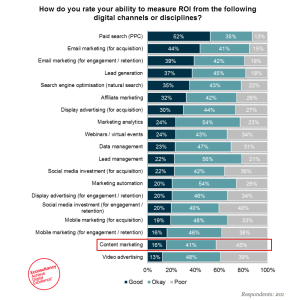By Art Markman
Think about the colleagues you really admire. They have that amazing ability to get things done while also making their team perform better. If you aspire to be more like them, what are some of the key habits you need to develop?
Finding the right priorities
At any given moment, there is a lot that you could be doing. Moreover, the list of potential tasks is driven both by things you have been given to do, as well as things that come up in the environment. For example, your current email queue probably has one or two rabbit holes you could dive down if you choose.
Great performers understand what’s required of them and then find a system for making the most progress on the highest priorities. There is no single system for that. For some people, that requires keeping a good to-do list and staying focused on the most important items on that list. Other people need to be responsive to what’s going on in the organization at the moment, so they need to be adept at triaging emails and instant messages to find the ones that must be dealt with first. Still others make their mark by having good meetings, so they need to ensure that they are prepared for each meeting they attend and then follow up on the action items that arise.
To develop better habits to prioritize, talk to other people who have had your role or who have similar roles at your company. Find out how they prioritize their focus. Keep track of what you accomplish each week and take a quick look at the list at the end of the week and think about whether you are happy with the mix of things you did.
Engaging in a process
Really successful people are able to achieve their long-term goals by engaging in day-to-day activities whose accumulated results lead to desired outcomes. In addition, successful people know that they may sometimes make decisions or try things that don’t work out as expected. Following a good decision process is the best way to ensure that you’ve made the best decision possible under the circumstances even when things go wrong.
That means that you want to find a method for doing your work that supports achieving long-term goals. As much as possible, you would like to have systems you can follow that enable you to make progress on key projects. That might involve time blocking to look at data or write on a long project. It might require setting up regular meetings with teammates to ensure that everyone is making progress on key tasks and solving the inevitable problems that arise.
The aim is to have specific things you can do daily and weekly that enable you to move forward with projects. Not every activity you engage in each day will push long-term projects forward, but having a process that supports progress allows you to accomplish big and small tasks along the way.
Engaging in systems thinking
The best performers are also able to solve the right problems. Often the problem that needs to be solved is not the one that people are asking to be solved. The things that people struggle with at work are sometimes symptoms of larger problems.
The most successful people are able to reason about the system in which work is being done. That way, they can assess what factors might have caused the problem that’s being observed. From those hypotheses, they can engage in conversations and observations to determine what the deeper problem might be and try to address that.
An easy way to start on this path comes when people ask you a question about something they are struggling with. In that moment, ask yourself: What question should they have asked? By starting with the assumption that the question posed is not necessarily the right one, you’re opening up the possibility that there is another way to think about issues that need to be addressed.
Early in your career, you may not be able to do this by yourself. You may want to take time in your meetings with supervisors and other mentors to lay out situations you’re grappling with and ask them for advice about what other factors you should be taking into account. The more you show interest in the broader system in which your work is being done, the more your supervisors will help you see the additional elements of the workplace that affect what you’re doing. That will speed you on your path to being a top performer.
(34)
Report Post








